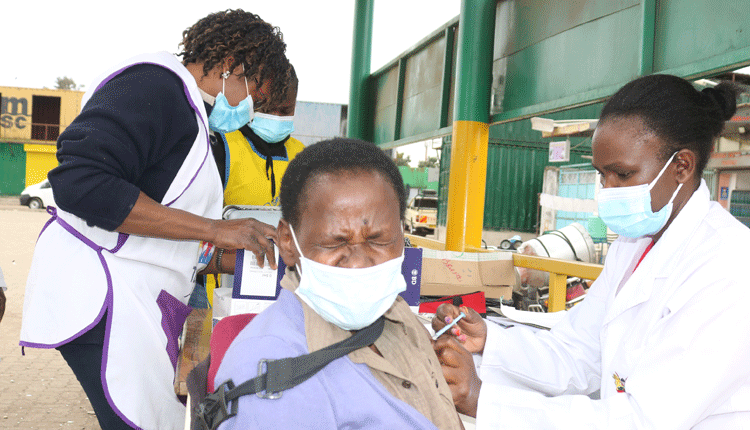Fate of community-based learning hangs in balance

As community-based learning kicks off with a view to keeping learners engaged in the wake of coronavirus pandemic ahead of schools re-opening next year, some education players remain at odds on the practicability of the programme with most saying the decision was a knee-jerk reaction.
Community-based learning recently launched by the Ministry of Education appears to have thrown the sector into confusion with a section of players in the education sector casting doubts over its success.
Key players say the programme, which is meant to engage learners in the face of the prevailing Covid-19 pandemic, was a rushed initiative, warning that its implementation could experience hitches.
Teachers argue that they were left out in the planning of the programme despite being the main custodians for learners.
One tutor who spoke to Scholar on condition of anonymity blamed the ministry for imposing the programme on them to implement, yet they were not involved from the beginning.
“We feel sidelined. Our views ought to have been incorporated on how best it should be done,” said the Kisumu teacher.
She said parents are not ready to allow their children go to such gatherings if proper Covid-19 containment measures such as physical distance are not adhered to.
At the same time, the tutors are concerned with time allocated for teaching against the number of learners targeted within different communities.
According to the community teaching guidelines, a teacher is to stay with 15 learners each day for a period of between four to five hours.
Digital literacy
However, they argue that such provision is not logical considering the high number of pupils expected to attend the sessions.
Additionally, the teachers are pointing to a challenge with digital literacy pointing out that majority of them are incapable of accessing the Internet to get the requisite skills for learners.
Kenya National Union of Teachers (Knut), Homa Bay county chairman Patrick Were says the ministry must prepare proper modalities for the programme’s successful implementation.
He points to confusion reigning among the teachers and how teaching will be executed based on the guidelines issued by TSC.
“The ministry is talking of 15 learners per class, what if more than this number avail themselves? Does it mean we will send the extra students back home?” asks Were.
He urges that the ministry puts in place minimum requirements to protect teachers against contracting coronavirus as they go about offering their services in the learning programme.
Further, the Knut official proposes that teachers enrolled for taking part in the teaching program be paid a risk allowance and emphasises on proper sanitation measures through fumigation of places to be used as learning centres.
Pamela Meyo, a Business Studies teacher at Pandpieri Primary School in Kisumu town stresses that safety of learners must be given utmost attention during implementation of the programme.
Meyo, who doubles up as a child protection head at the school says failure to provide proper safety measures for the learners may expose them to cases of sexual and psychological abuse.
Consequently, she notes that hook-eyed supervision will be needed for the children while administering the life skills teaching.
“We have received several reports about children being abused in various ways.
There must be surety that they are going to be protected from any form of abuse before the government rolls out the community-based learning program,” she adds.
Responsibility to give up
Kenya Union of Post-Primary Education Teachers (Kuppet) secretary general Akello Misori said community-based learning will have a direct bearing in shaping the lives of learners during this period when schools are closed.
He argues that teachers have a call of duty to help salvage the next generation by taking the current cohort of learners through life oriented skills.
“Teachers have the obligation to give back to the society by equipping the children with life skills to survive as we wait for the virus curve to flatten so that we can have a generation to teach next year,” Misori said in Kisumu last week.
The Kuppet boss observed that learners are likely to go astray if they are left unattended by trained personnel who know and understand them, adding that children are not safe at home, drawing anxiety from parents and other sector stakeholders over their future.
“Engaging our learners during the pandemic is of paramount importance, the children of this generation are likely to be lost to crime, drug and substance abuse and teenage pregnancies,” explained Misori.
Meanwhile, the Kenya Union of Special Needs Education Teachers (KUSNET) asked the education ministry to improvise a curriculum for teaching pupils under the proposed learning program.
KUSNET general secretary James Torome blamed Education Cabinet Secretary George Magoha for failing to provide teachers with a curriculum for exercise, arguing that teachers are still confused on how to teach pupils outside their schools.
“Teachers in Kenya teach using a curriculum which the CS has not provided us with. We urge him to develop a curriculum,” said Torome.
He noted that telling teachers to teach in a new environment without a curriculum is tantamount to confusing them, saying the ministry of made unilateral decisions.
In response, CS Magoha said the community based learning will not be syllabus focused and was intended to enhance students’ life skills as well as equipped with Covid-19 knowledge.













